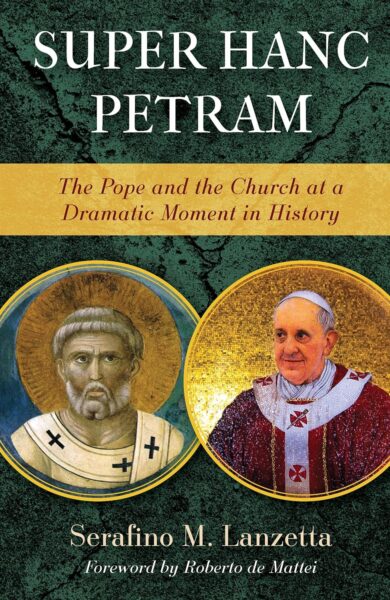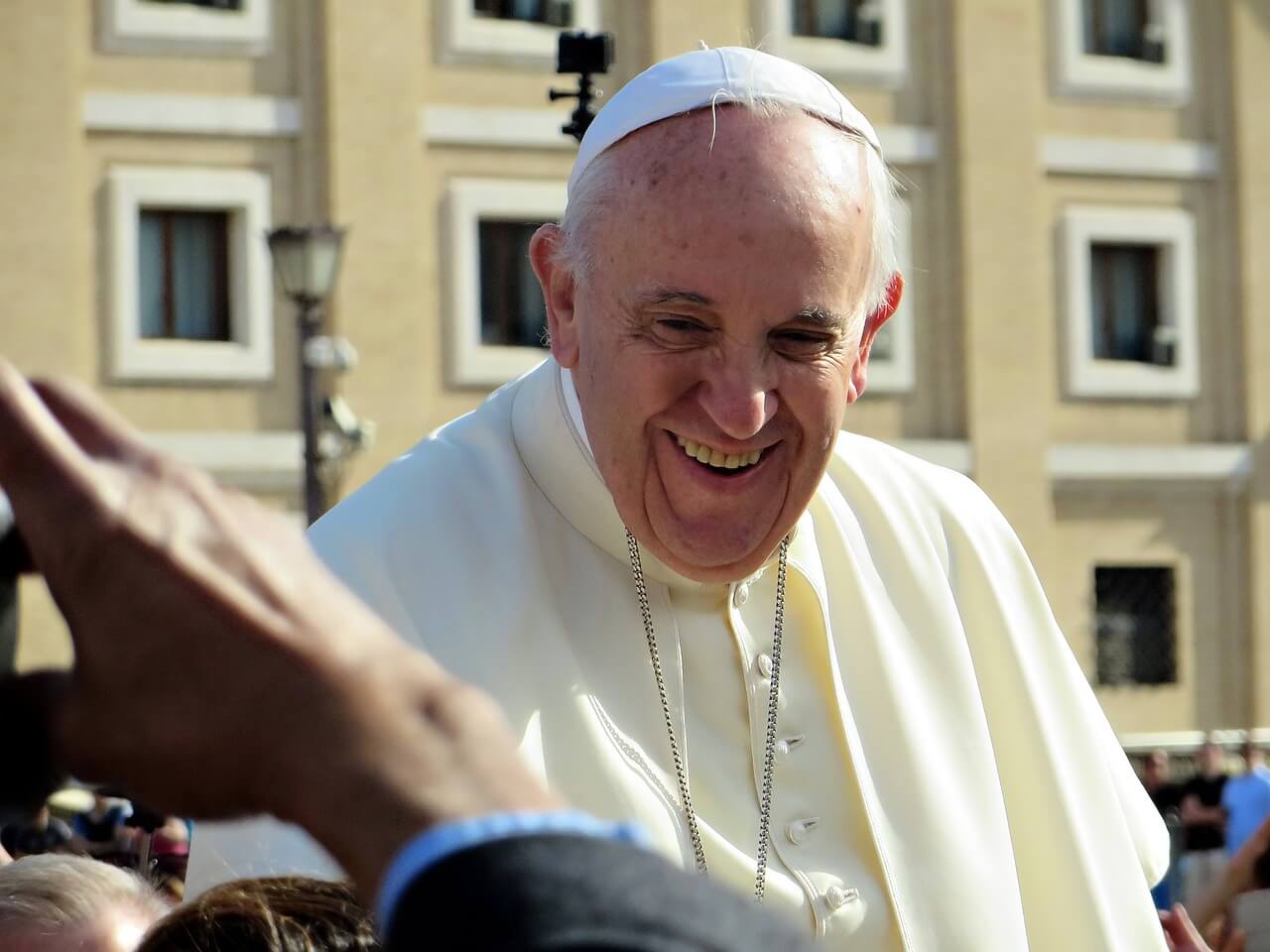|
Getting your Trinity Audio player ready...
|
In Super Hanc Petram Fr Serafino Lanzetta studies with care the teachings of the present Pope, a task which all his admirers will agree is very laudable.

Speaking for myself, one of the many doctrines of Pope Francis with which I fully agree is that “the reality is greater than the idea”. In this case, the reality is that Pope Francis is a politician; and, as with all politicians, his pronouncements are slogans in his essential aim of courting power and popularity. Fr Lanzetta, however, has chosen a more painstaking approach, that of analysing the Pope’s words in detail and thereby pointing out the shallowness and incoherence they represent. From both methods the greater reality emerges.
Among the interesting results of Fr Lanzetta’s approach is to disclose a paradox in Pope Francis’s treatment of the Second Vatican Council. He makes much of the Council as a revolutionary event, yet, as the author shows, he hardly ever actually quotes the Council. The (approving) words of Fr Antonio Spadaro are given:
I get the impression that the pope simply considers the council an event that is not up for debate and that, as if to stress its fundamental importance, is not worth discussing at too great a length.
Quite so. If one actually read what the Council taught, there would be a danger of the God of Surprises catching one unawares.
Fr Lanzetta probes the Pope’s slogans on other topics, for example, his advocacy of a Church that “goes out of itself” to meet the world. No definition is given of what the Church is supposed to do when it has gone out: certainly not to proselytize, an action which Francis repeatedly castigates as an ultimate sin. We are thus left with a Church whose mission consists in congratulating itself on being “outgoing,” and thus putting to shame the fortress Church of the past. As Fr Lanzetta writes,
There is a risk not only of this going forth becoming a slogan which conveys other ideas, but particularly of the Church’s mission being halted and of the Church itself turning its focus ever more inward, finding itself crushed under its own weight.
Now, if Pope Francis looked around for a genuine example of going out into the world, he would find one in his own Order and in his own continent. In South America, the Jesuits went out into the jungle, and they founded the Reductions, autonomous native states which supremely exemplified the ideal of a Christian society. The Jesuits did this because they had gone out with a specific intention: to plant the Kingdom of Christ where it had not existed before. It was a programme clear, coherent, rigorous, fruitful, and demonstrating the power of an other-worldly vision in the real world. Against this historic achievement we place the present Jesuit, whose idea is to go out into the world to get a pat on the back from Greta Thunberg and George Soros.
The title of this book is Super Hanc Petram, and the author explores the present implications of this phrase. Our Lord’s words were “on this Rock I will build my Church.” The answer to the question ubi Petrus?, where is the Rock? in the present Church must surely be, not in the See of Rome. Fr Lanzetta writes:
If it happens that the Successor of Peter obeys the new dictates of a group that has been committed for years to changing the dictates of the Faith in the name of ever-evolving and whimsical pastoral experiments, to make it more amenable to the world, then such a Peter, no longer being a teacher of truth and father of souls, and favoring an Antichristic path, would become, in the most extreme contradiction of what he is, an instrument of doctrinal confusion.
The reality of our current plight is well summed up by the author: “The present situation of the Church is truly appalling. An internal struggle being waged between truth and power is wearing her ragged.” Appalling it is indeed, yet we can comfort ourselves with the thought that the power is ephemeral, and what will endure is the truth that is set forth in books like this one, faithful to the eternal teaching of the Church.


